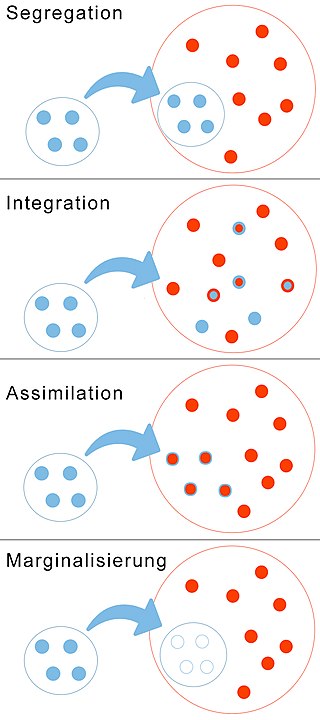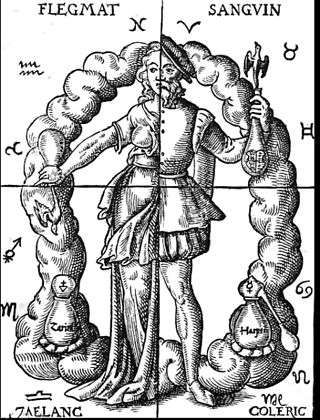
Human sexual activity, human sexual practice or human sexual behaviour is the manner in which humans experience and express their sexuality. People engage in a variety of sexual acts, ranging from activities done alone to acts with another person in varying patterns of frequency, for a wide variety of reasons. Sexual activity usually results in sexual arousal and physiological changes in the aroused person, some of which are pronounced while others are more subtle. Sexual activity may also include conduct and activities which are intended to arouse the sexual interest of another or enhance the sex life of another, such as strategies to find or attract partners, or personal interactions between individuals. Sexual activity may follow sexual arousal.

An infection is the invasion of tissues by pathogens, their multiplication, and the reaction of host tissues to the infectious agent and the toxins they produce. An infectious disease, also known as a transmissible disease or communicable disease, is an illness resulting from an infection.
An aphrodisiac is a substance that increases sexual desire, sexual attraction, sexual pleasure, or sexual behavior. Substances range from a variety of plants, spices, foods, and synthetic chemicals. Natural aphrodisiacs like cannabis or cocaine are classified into plant-based and non-plant-based substances. There are non-naturally-occurring aphrodisiacs like MDMA and methamphetamine. Aphrodisiacs can be classified by their type of effects. Aphrodisiacs that contain hallucinogenic properties like Bufotenin have psychological effects on a person that can increase sexual desire and sexual pleasure. Aphrodisiacs that contain smooth muscle relaxing properties like yohimbine have physiological effects on a person that can affect hormone levels and increase blood flow.

Saliva is an extracellular fluid produced and secreted by salivary glands in the mouth. In humans, saliva is around 99% water, plus electrolytes, mucus, white blood cells, epithelial cells, enzymes, antimicrobial agents.

Acculturation is a process of social, psychological, and cultural change that stems from the balancing of two cultures while adapting to the prevailing culture of the society. Acculturation is a process in which an individual adopts, acquires and adjusts to a new cultural environment as a result of being placed into a new culture, or when another culture is brought to someone. Individuals of a differing culture try to incorporate themselves into the new more prevalent culture by participating in aspects of the more prevalent culture, such as their traditions, but still hold onto their original cultural values and traditions. The effects of acculturation can be seen at multiple levels in both the devotee of the prevailing culture and those who are assimilating into the culture.
Battery is a criminal offense involving unlawful physical contact, distinct from assault which is the act of creating apprehension of such contact.
Employment is a relationship between two parties regulating the provision of paid labour services. Usually based on a contract, one party, the employer, which might be a corporation, a not-for-profit organization, a co-operative, or any other entity, pays the other, the employee, in return for carrying out assigned work. Employees work in return for wages, which can be paid on the basis of an hourly rate, by piecework or an annual salary, depending on the type of work an employee does, the prevailing conditions of the sector and the bargaining power between the parties. Employees in some sectors may receive gratuities, bonus payments or stock options. In some types of employment, employees may receive benefits in addition to payment. Benefits may include health insurance, housing, disability insurance. Employment is typically governed by employment laws, organisation or legal contracts.

Humorism, the humoral theory, or humoralism, was a system of medicine detailing a supposed makeup and workings of the human body, adopted by Ancient Greek and Roman physicians and philosophers.

Human behavior is the potential and expressed capacity of human individuals or groups to respond to internal and external stimuli throughout their life. Behavior is driven by genetic and environmental factors that affect an individual. Behavior is also driven, in part, by thoughts and feelings, which provide insight into individual psyche, revealing such things as attitudes and values. Human behavior is shaped by psychological traits, as personality types vary from person to person, producing different actions and behavior.
Psychological trauma, mental trauma or psychotrauma is an emotional response to a distressing event or series of events, such as accidents, rape, or natural disasters. Reactions such as psychological shock and psychological denial are typical. Longer-term reactions include unpredictable emotions, flashbacks, difficulties with interpersonal relationships and sometimes physical symptoms including headaches or nausea.
In legal definitions for interpersonal status, a single person refers to a person who is not in committed relationships, or is not part of a civil union. In common usage, the term 'single' is often used to refer to someone who is not involved in any type of romantic relationship, including long-term dating, engagement, marriage, or someone who is 'single by choice'. Single people may participate in dating and other activities to find a long-term partner or spouse.
Gogodala is the name of an ethnic/language group from the Middle Fly District of the Western Province of Papua New Guinea. They speak the Gogodala language, which belongs to the Trans-New Guinea language family. It is one of about a thousand distinct ethnic groups in the country, each which has its own language and culture.
Mauger, the Jamaican Patois word for 'meagre', is a term used in rural Jamaica for a thin woman. In Jamaica, plumpness is considered to be important or vital to good health. The desired body is plump, full of vital bodily fluids, and the flow of substances through the body is maintained, both of which are contributing factors to good health. Any disruption in this flow or lack of bodily fluids is considered to be unhealthy and contributes to sickness. Being thin is associated with bad health, and is a factor which affects social relationships. According to Elis J. Sobo, "A slim person, especially a slim woman, is called a mauger - meagre and powerless - as if not alive at all, and like a mummy or an empty husk, far beyond that powerfully dangerous state of decay. A thin, dry body reveals a person's non-nurturant nature and his or her lack of social commitment" (p. 262).
Chambri are an ethnic group in the Chambri Lakes region in the East Sepik province of Papua New Guinea. The social structures of Chambri society have often been a subject in the study of gender roles. They speak the Chambri language.

Roy A. Rappaport (1926–1997) was an American anthropologist known for his contributions to the anthropological study of ritual and to ecological anthropology.

Non-penetrative sex or outercourse is sexual activity that usually does not include sexual penetration. It generally excludes the penetrative aspects of vaginal, anal, or oral sexual activity, but includes various forms of sexual and non-sexual activity, such as frottage, mutual masturbation, kissing, or cuddling. Some forms of non-penetrative sex, particularly when termed outercourse, include penetrative aspects, such as penetration that may result from forms of fingering or oral sex.

Criminalization of consensual BDSM practices is usually not with explicit reference to BDSM, but results from the fact that such behavior as spanking or cuffing someone could be considered a breach of personal rights, which in principle constitutes a criminal offense. In Germany, Netherlands, Japan and Scandinavia, such behavior is legal in principle. In Austria the legal status is not clear, while in Switzerland some BDSM practices can be considered criminal.
The concept of nurture kinship in the anthropological study of human social relationships (kinship) highlights the extent to which such relationships are brought into being through the performance of various acts of nurture between individuals. Additionally the concept highlights ethnographic findings that, in a wide swath of human societies, people understand, conceptualize and symbolize their relationships predominantly in terms of giving, receiving and sharing nurture. The concept stands in contrast to the earlier anthropological concepts of human kinship relations being fundamentally based on "blood ties", some other form of shared substance, or a proxy for these, and the accompanying notion that people universally understand their social relationships predominantly in these terms.
Personal identity is the unique numerical identity of a person over time. Discussions regarding personal identity typically aim to determine the necessary and sufficient conditions under which a person at one time and a person at another time can be said to be the same person, persisting through time.

Telehealth is the practice of providing healthcare via communication between the healthcare practitioner and the patient through electronic (virtual) methods such as telephones, smartphones, tablets, and computers. Telehealth permits patients to communicate with professionals via telephone, secure email, video chat, and in some instances secure messaging. Physicians may also utilize the telehealth systems for remote monitoring of patients at home. When the telehealth industry was founded, it was primarily used to provide services to underserved and rural area patients, enabled people to connect to specialists not located nearby. Telehealth was initially used predominantly for specialties such as cardiology, neurology, mental health, and dermatology. Telehealth has expanded to include many new applications such as physical therapy through digital monitoring tools and surgery done remotely using robots. The first major telehealth company, Teladoc, was founded in 2002 and since then the industry has grown to include companies such as Amwell, MeMD, and iCliniq.









